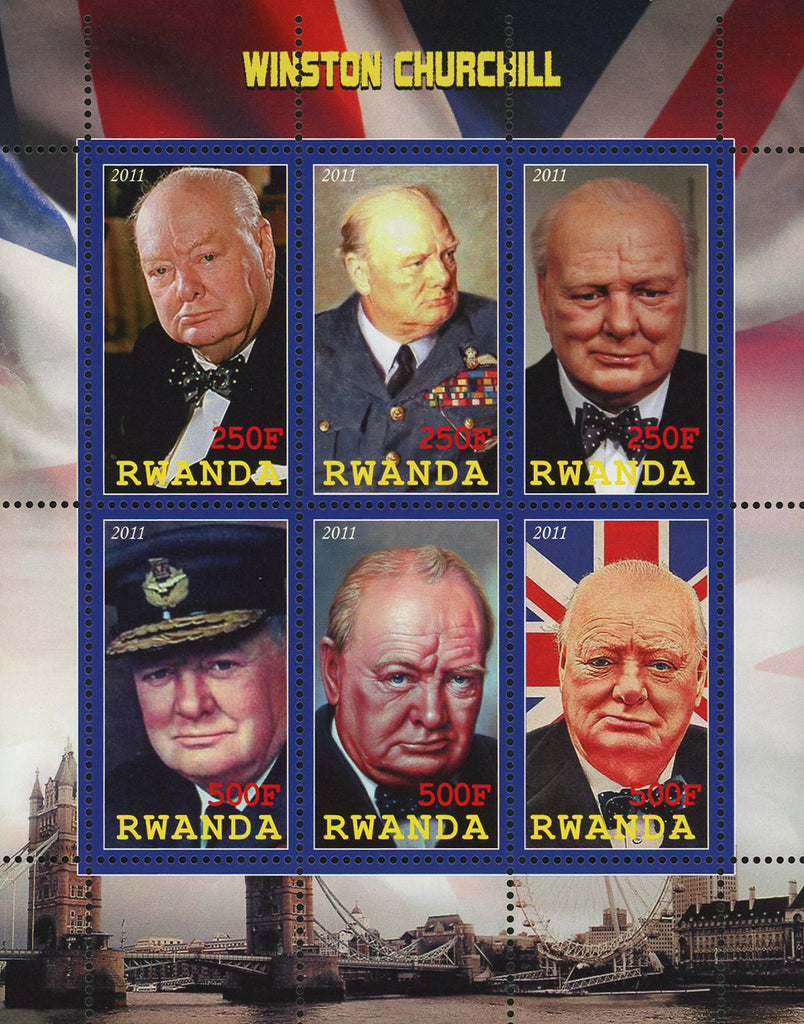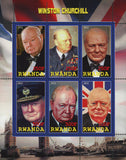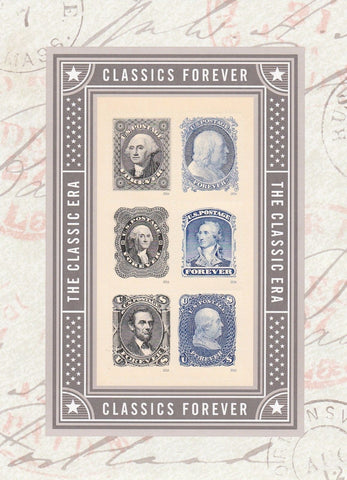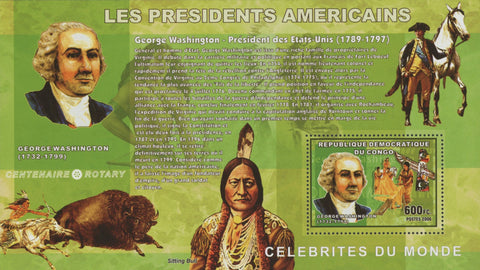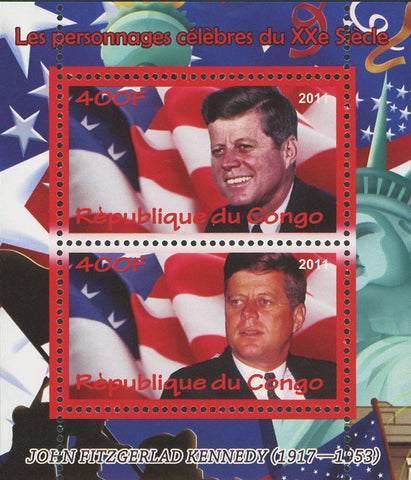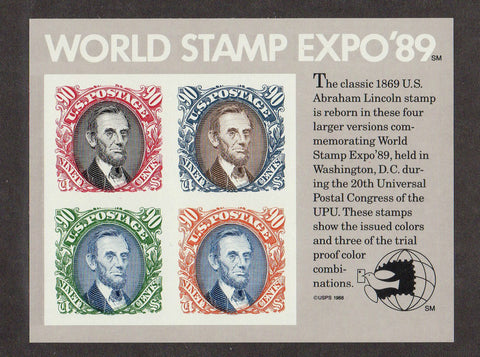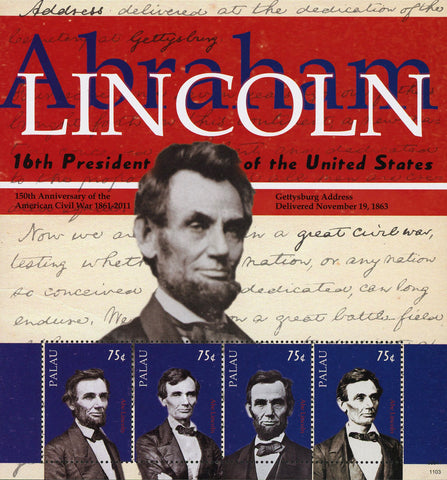Winston Churchill President British Souvenir Sheet of 6 Stamps Mint NH
- Categories Historical Figures, Presidents, Rwanda
Rwanda Winston Churchill President British Souvenir Sheet of 6 Stamps Mint NH
Sir Winston Leonard Spencer-Churchill, KG, OM, CH, TD, DL, FRS, RA (30 November 1874 – 24 January 1965) was a British politician, army officer, and writer. He was Prime Minister of the United Kingdom from 1940 to 1945, when he led Britain to victory in the Second World War, and again from 1951 to 1955. Churchill represented five constituencies during his career as a Member of Parliament (MP). Ideologically an economic liberal and imperialist, for most of his career he was a member of the Conservative Party, which he led from 1940 to 1955, but from 1904 to 1924 was instead a member of the Liberal Party.
Of mixed English and American parentage, Churchill was born in Oxfordshire to a wealthy, aristocratic family. Joining the British Army, he saw action in British India, the Anglo–Sudan War, and the Second Boer War, gaining fame as a war correspondent and writing books about his campaigns. Elected an MP in 1900, initially as a Conservative, he defected to the Liberals in 1904. In H. H. Asquith's Liberal government, Churchill served as President of the Board of Trade, Home Secretary, and First Lord of the Admiralty, championing prison reform and workers' social security. During the First World War, he oversaw the Gallipoli Campaign; after it proved a disaster, he resigned from government and served in the Royal Scots Fusiliers on the Western Front. In 1917, he returned to government under David Lloyd George as Minister of Munitions, and was subsequently Secretary of State for War, Secretary of State for Air, then Secretary of State for the Colonies. After two years out of Parliament, he served as Chancellor of the Exchequer in Stanley Baldwin's Conservative government, returning the pound sterling in 1925 to the gold standard at its pre-war parity, a move widely seen as creating deflationary pressure on the UK economy.
Out of office during the 1930s, Churchill took the lead in calling for British rearmament to counter the growing threat from Nazi Germany. At the outbreak of the Second World War, he was re-appointed First Lord of the Admiralty before replacing Prime Minister Neville Chamberlain in 1940. Churchill oversaw British involvement in the Allied war effort against Germany and the Axis powers, resulting in victory in 1945. His wartime leadership was widely praised, although acts like the Bombing of Dresden and his wartime response to the Bengal famine generated controversy. After the Conservatives' defeat in the 1945 general election, he became Leader of the Opposition. Amid the developing Cold War with the Soviet Union, he publicly warned of an "iron curtain" of Soviet influence in Europe and promoted European unity. Re-elected Prime Minister in 1951, his second term was preoccupied with foreign affairs, including the Malayan Emergency, Mau Mau Uprising, Korean War, and a UK-backed Iranian coup. Domestically his government emphasised house-building and developed a nuclear weapon. In declining health, Churchill resigned as prime minister in 1955, although he remained an MP until 1964. Upon his death in 1965, he was given a state funeral.
Fast & Free Shipping within U.S.A.
We Care for your order, Pack it carefully and ship it within 24 hours.
Satisfaction Guaranteed !
Please explore our store for more stamps, souvenir sheets, post-office collectibles and philately books and pre-philatelic items:
montecinos.philately


